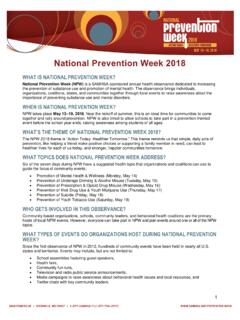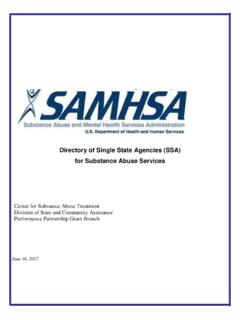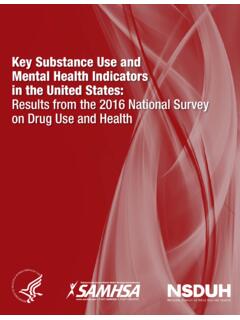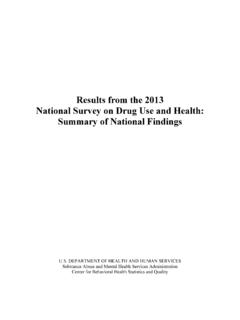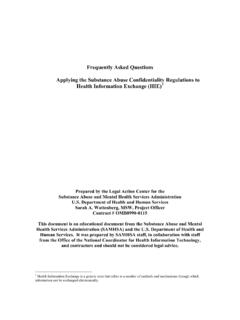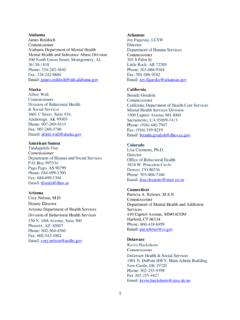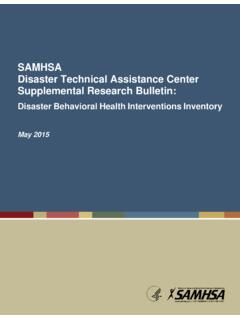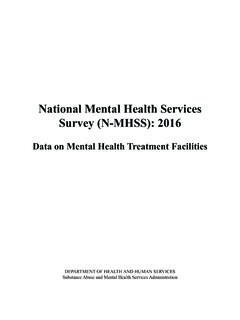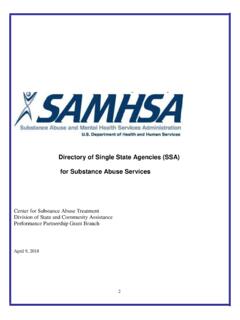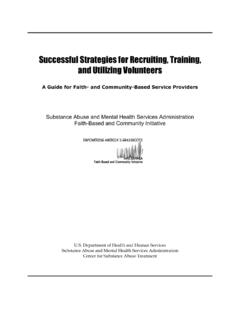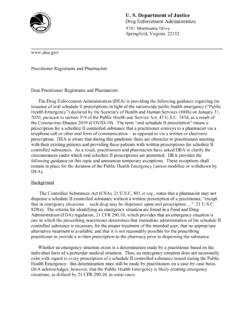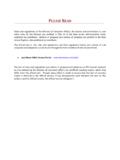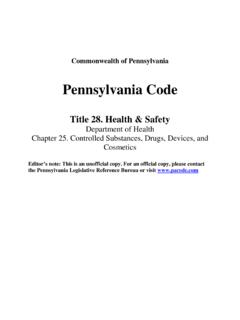Transcription of DEA Information on Telemedicine - Substance Abuse and ...
1 DEA Information ON Telemedicine . Telemedicine On January 31, 2020, the Secretary of the Department of Health and Human Services issues a public health emergency (HHS Public Health Emergency Declaration). Question: Can Telemedicine now be used under the conditions outlined in Title 21, United States Code ( ), Section 802(54)(D)? Answer: Yes While a prescription for a controlled Substance issued by means of the Internet (including Telemedicine ) must generally be predicated on an in-person medical evaluation (21 829(e)), the controlled Substances Act contains certain exceptions to this requirement. One such exception occurs when the Secretary of Health and Human Services has declared a public health emergency under 42 247d (section 319 of the Public Health Service Act), as set forth in 21 802(54)(D). Secretary Azar declared such a public health emergency with regard to COVID-19 on January 31, 2020.
2 ( ). For as long as the Secretary's designation of a public health emergency remains in effect, DEA-registered practitioners may issue prescriptions for controlled substances to patients for whom they have not conducted an in-person medical evaluation, provided all of the following conditions are met: The prescription is issued for a legitimate medical purpose by a practitioner acting in the usual course of his/her professional practice The Telemedicine communication is conducted using an audio-visual, real-time, two- way interactive communication system. The practitioner is acting in accordance with applicable Federal and State law. Provided the practitioner satisfies the above requirements, the practitioner may issue the prescription using any of the methods of prescribing currently available and in the manner set forth in the DEA regulations. Thus, the practitioner may issue a prescription either electronically (for schedules II-V) or by calling in an emergency schedule II prescription to the pharmacy, or by calling in a schedule III-V prescription to the pharmacy.
3 Important note: If the prescribing practitioner has previously conducted an in-person medical evaluation of the patient, the practitioner may issue a prescription for a controlled Substance after having communicated with the patient via Telemedicine , or any other means, regardless of whether a public health emergency has been declared by the Secretary of Health and Human Services, so long as the prescription is issued for a legitimate medical purpose and the practitioner is acting in the usual course of his/her professional practice. In addition, for the prescription to be valid, the practitioner must comply with any applicable State laws.
